



It’s crucial to keep your cleaning device away from direct contact with water in order to maintain its longevity and functionality. Exposure to excessive moisture can compromise electronic components and lead to performance issues or complete failure. Always ensure that the equipment is stored in a dry place and shielded from rain or splashes during use.
While many models are designed to withstand some level of humidity, they are not completely waterproof. Follow the manufacturer’s recommendations regarding proper usage conditions. For example, if you’re operating the machine outdoors, check the weather forecast to avoid surprise showers.
After finishing your cleaning tasks, inspect the unit for any signs of moisture accumulation. If you suspect water has entered the housing, allow the device to dry completely before storing it away. Incorporating protective covers can also help to shield your investment from the elements when not in use.
Understanding the Waterproof Rating of Electric Pressure Cleaners
Before using any model, checking its waterproof rating is paramount. Typically, ratings are indicated by an Ingress Protection (IP) code, which specifies the level of protection against solids and liquids. A common rating for these devices is IPX5, which means they can withstand water jets from any direction without harmful effects. Always refer to your unit’s specifications.
IP Ratings Explained
An IP rating is composed of two digits. The first digit ranges from 0 to 6 and denotes protection against solid objects, while the second digit, from 0 to 9, indicates the level of liquid protection. For instance, IP65 signifies complete dust ingress protection and resistance to low-pressure water. Understanding these ratings will help you determine how flexible your equipment can be around moisture.
Recommendations for Use in Wet Conditions
Even with a robust waterproof rating, taking precautions during operation is wise. Avoid submerging the device in water or exposing it to heavy rain for prolonged periods. Using it outdoors, ensuring it’s placed on a stable surface, and keeping electrical components elevated can minimise risks. Regular maintenance and inspections for any damage to seals will prolong its lifespan and enhance safety.
Best practices for using pressure cleaners in wet conditions
Ensure all connections are secure. Inspect hoses and fittings for any leaks or damage. A tight seal helps prevent water ingress into components.
Utilise ground fault circuit interrupters (GFCIs) to enhance safety. These devices cut off power if they detect any anomalies in electrical flow, providing an extra layer of protection when operating outdoors.
Maintain a safe distance from water sources. Position the unit at least six feet away from puddles or running water to reduce the risk of electrical hazards.
Choose nozzles carefully. Opt for fan-shaped spray patterns over narrow jets when working near wet surfaces to minimise splashback and maintain better control.
Work strategically. Begin from higher areas and work downwards. This method allows any excess water to drain away naturally without pooling where you’re working.
Keep an eye on the weather. Avoid usage during heavy rainfall or windy conditions. Wind can exacerbate water issues, making control difficult.
Store equipment indoors. Post-cleaning, ensure the apparatus is completely dry before storing, as moisture can lead to rust or electrical component failure.
Inspect and clean filters regularly. This practice prevents clogs from moisture-related debris, ensuring optimal performance even in damp conditions.
Limit use on slick surfaces. If operating on wet concrete or paving, proceed with caution. The combination of pressure and surface conditions can affect your footing and control.
Common Hazards of Using Electric Pressure Cleaners in the Rain
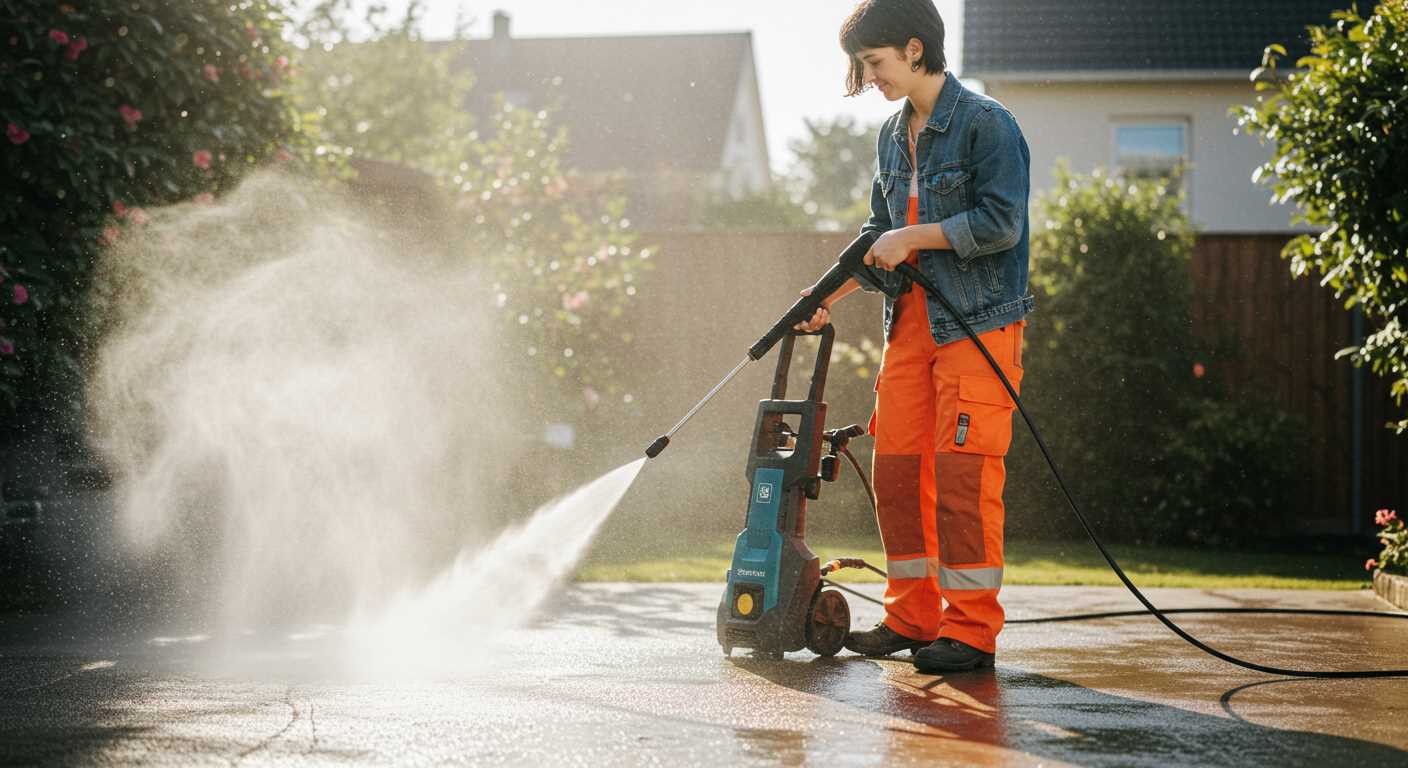
Operating a high-pressure cleaning device outdoors during rainfall poses significant risks. Electrical shock is the primary concern; water can compromise electrical components, leading to dangerous situations. Consequently, I advise avoiding any operation in wet conditions when possible.
Another critical hazard is reduced traction on surfaces. Wet surfaces can cause the equipment to slip or tip over, increasing the potential for personal injury or damage to the surroundings. Maintain awareness of footing and the orientation of the device to mitigate these risks.
Potential for Equipment Damage
Moisture exposure can also lead to long-term damage of the motor and internal circuitry. Increases in humidity can cause corrosion, reducing the lifespan and performance of the unit. To mitigate this, ensure the equipment is stored in a dry environment between uses.
Slips and Falls
Utilising a high-pressure cleaning device on a slick surface increases the likelihood of slips. Ensure that surfaces are clear of hazards, such as debris and puddles, before commencing work. Using proper footwear will also enhance stability and control during operation.
| Hazard | Description | Prevention |
|---|---|---|
| Electrical Shock | Risk of electric shock due to water contact. | Avoid use in rain; check for proper insulation. |
| Equipment Damage | Moisture can cause corrosion and overheating. | Store in a dry environment; maintain regular servicing. |
| Slips and Falls | Slick surfaces increase risk of falls. | Clear debris; use non-slip footwear. |
Maintenance tips for water exposure on pressure cleaning devices
Immediately after using the equipment in moist conditions, ensure it is unplugged and dry the exterior thoroughly with a soft cloth. Pay special attention to the control panel and any electrical connections, as moisture can lead to corrosion or malfunction.
Regularly inspect seals and gaskets for signs of wear or damage. These components can allow moisture to infiltrate internal parts, affecting performance and longevity. If any are compromised, replace them promptly.
Utilise proper storage solutions by keeping the unit in a sheltered area or under a protective cover. This will prevent unnecessary exposure to the elements when not in use. Choose a dry, well-ventilated space for long-term storage to mitigate moisture buildup.
Cleansing filters and nozzles routinely is essential, especially after working in wet environments. Blockages can occur due to debris mixing with excess moisture, which may impede water flow and damage the machine.
Consider applying a silicone-based spray to electrical contacts to enhance moisture resistance. This can create a protective barrier against humidity, aiding in maintaining functionality over time.
Conduct annual servicing, focusing on electrical components particularly prone to water exposure. Seeking professional help can ensure thorough checks and effective maintenance, extending the device’s lifespan.
By adhering to these care strategies, one can keep the unit operating efficiently and reduce the risk of damage related to moisture. Consistent attention to these aspects leads to a reliable and enduring tool, ready for any task at hand.
How to safely store your pressure cleaning equipment after wet use
Immediately after usage in damp conditions, disconnect the power supply from the outlet. This prevents any electrical hazards. Allow the unit to dry completely by placing it in a sheltered area with good airflow. Avoid direct sunlight, as excessive heat may cause damage to the components.
Inspect hoses and attachments for any moisture. Drain any remaining water from these parts and store them separately. It is vital to ensure that all connections are properly sealed to protect against corrosion.
Utilise a protective cover designed specifically for this equipment. This cover should be breathable to prevent moisture build-up, which can lead to mould or mildew. Store the equipment in a cool, dry environment, free from extreme temperatures.
Clean thoroughly by rinsing off any dirt or debris. Use a soft cloth to wipe down surfaces, ensuring no water remains, especially around electrical components. Regular cleaning enhances longevity and performance.
Consider placing the unit off the ground, using a shelf or bracket. This keeps it safe from potential water pooling and reduces the risk of contact with damp surfaces.
Evaluate its condition regularly. If you notice any signs of wear or damage after exposure to moisture, address these before the next use. Prompt maintenance enhances safety and efficiency.
Choosing the Right Electric Pressure Cleaner for Outdoor Use
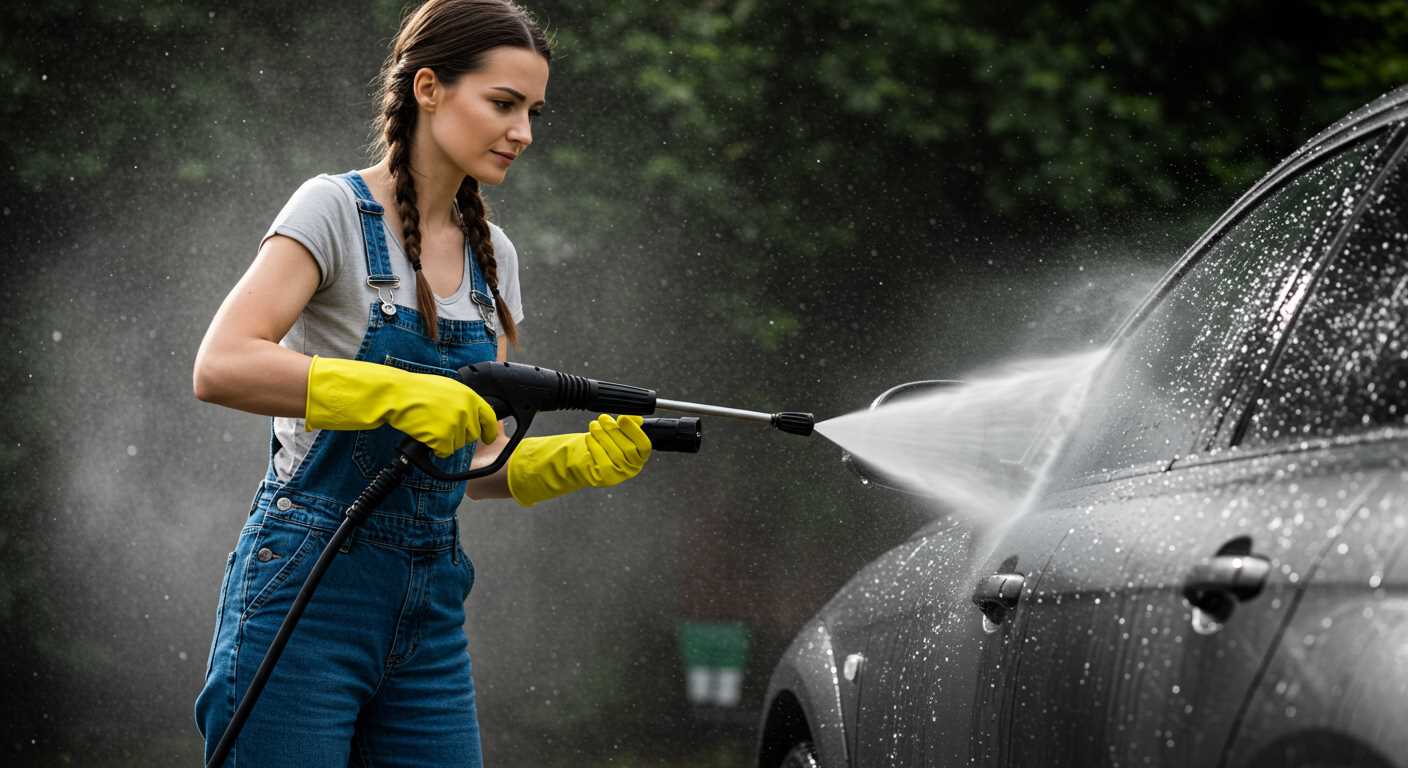
Focus on the power ratings when selecting a device. Models between 1500 to 2000 psi are suitable for general outdoor tasks, such as washing patios, decks, and vehicles. For tougher jobs, consider options above 2000 psi, but ensure your application truly requires the extra strength to avoid damage.
Consider the ease of mobility. Devices with wheels and lightweight frames enhance manoeuvrability. If your cleaning areas are extensive, look for units with longer hoses and power cords. This allows more reach without frequent movement of the machine.
Check for user-friendly features like adjustable nozzles or quick-connect attachments. These allow for versatile pressure adjustment and streamline switching between tasks. Ergonomic designs can significantly reduce strain during prolonged use, making your efforts more comfortable.
Evaluate the noise level as well, particularly if you live in close proximity to neighbours. Look for models that advertise quieter operation while still delivering sufficient cleaning power. This will allow you to work at any time without disturbing others.
Be aware of the accessories included with a purchase. Some units come with brushes or detergents specifically formulated for certain surfaces. These can enhance cleaning performance and provide added value. Investing in models with comprehensive accessory kits can save additional costs later.
Finally, consider the warranty and customer support from the manufacturer. A longer warranty indicates confidence in the product’s durability. Reliable customer service can be invaluable if you encounter issues or need guidance after your purchase.
Signs Your Electric Pressure Cleaner Has Been Damaged by Water
Look for these indicators to determine if your high-pressure cleaning unit has suffered water-related harm:
-
Reduced Performance
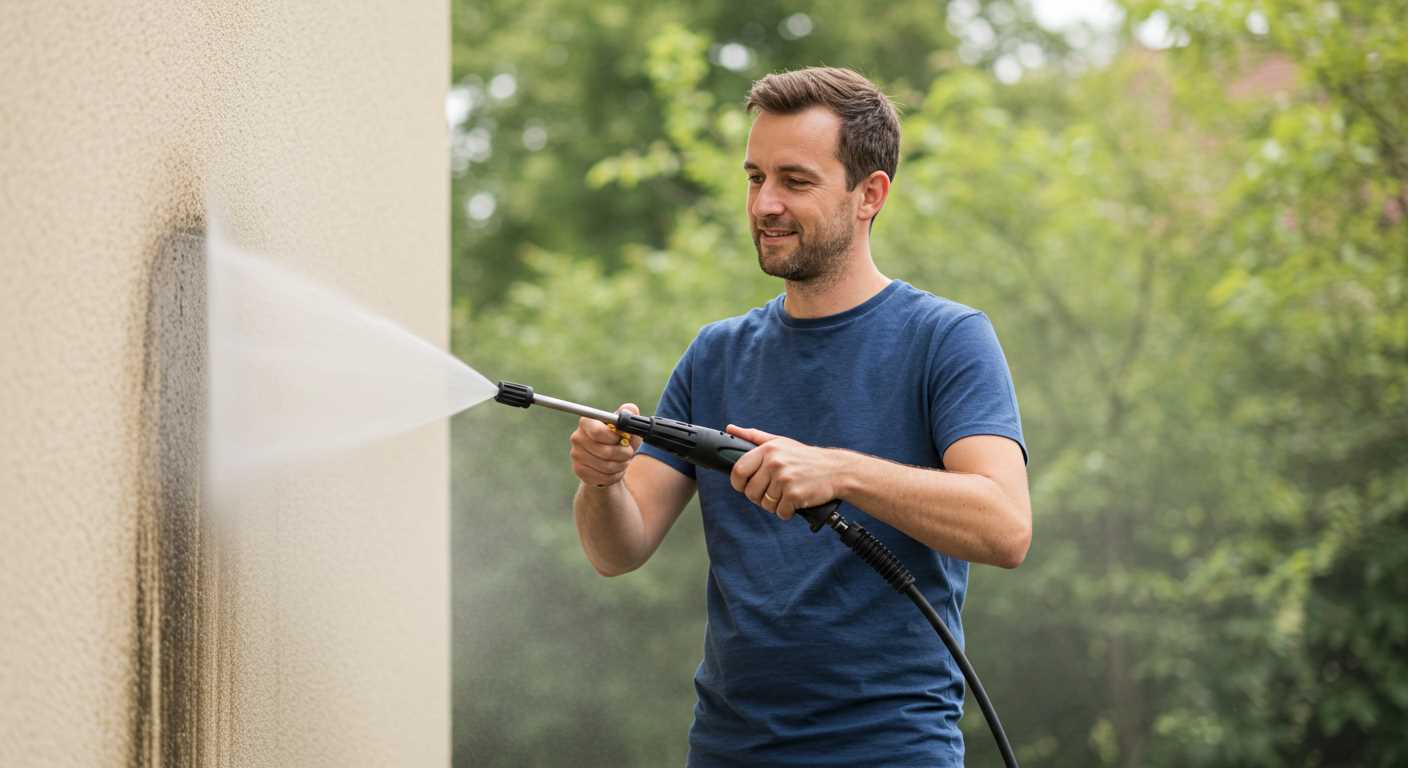
If you experience weak spray or a significant drop in pressure, this could signal internal issues, potentially linked to moisture infiltration.
-
Electrical Failures
Problems such as tripped breakers, blown fuses, or failure to start can indicate water damage affecting electrical components.
-
Corrosion
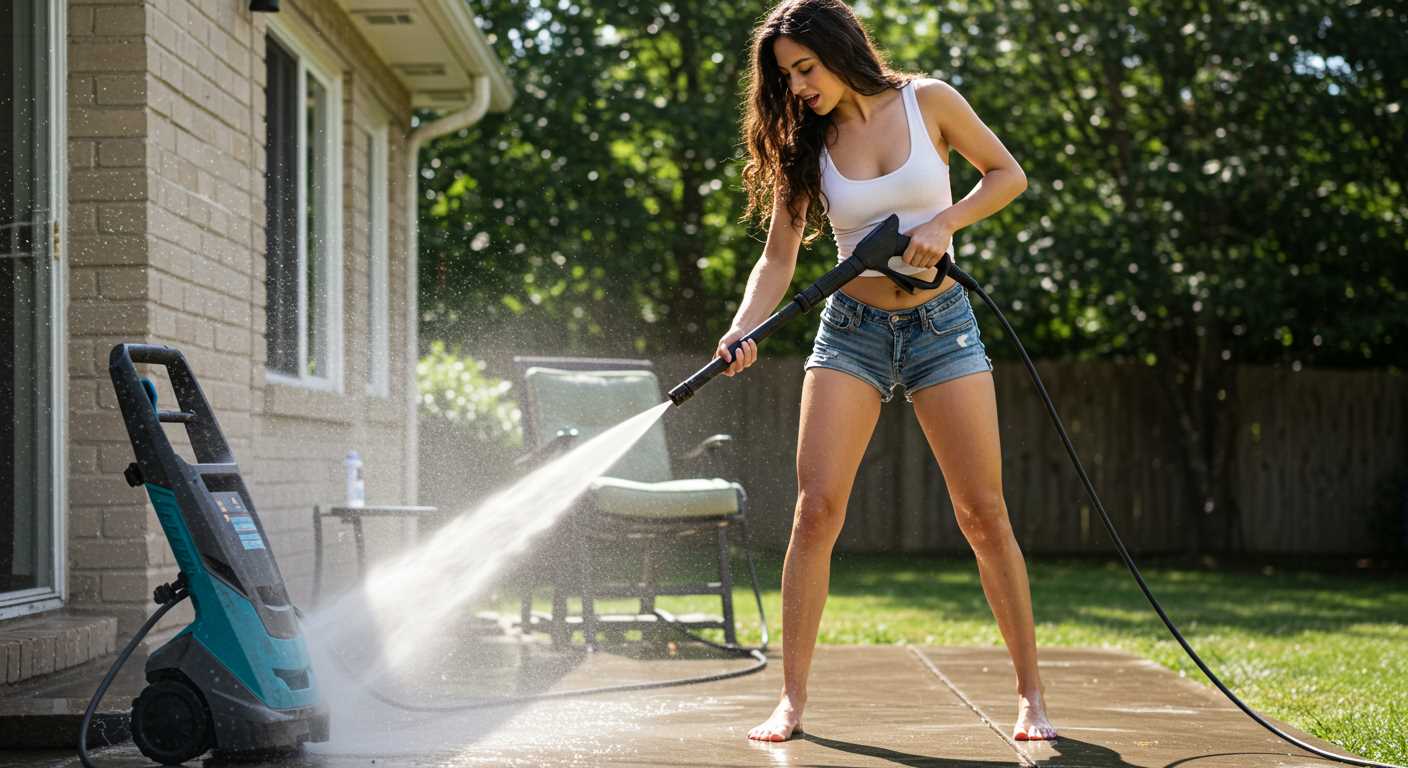
Check for rust or corrosion on metal parts, which suggests prolonged exposure to moisture could have compromised structural integrity.
-
Water Accumulation
Look for signs of water pooling in the motor or near electrical connections; moisture buildup can lead to short circuits.
-
Unusual Noises
Listen for grinding, buzzing, or other abnormal sounds when operating the unit; these noises may indicate water damage within the pump.
-
Odour
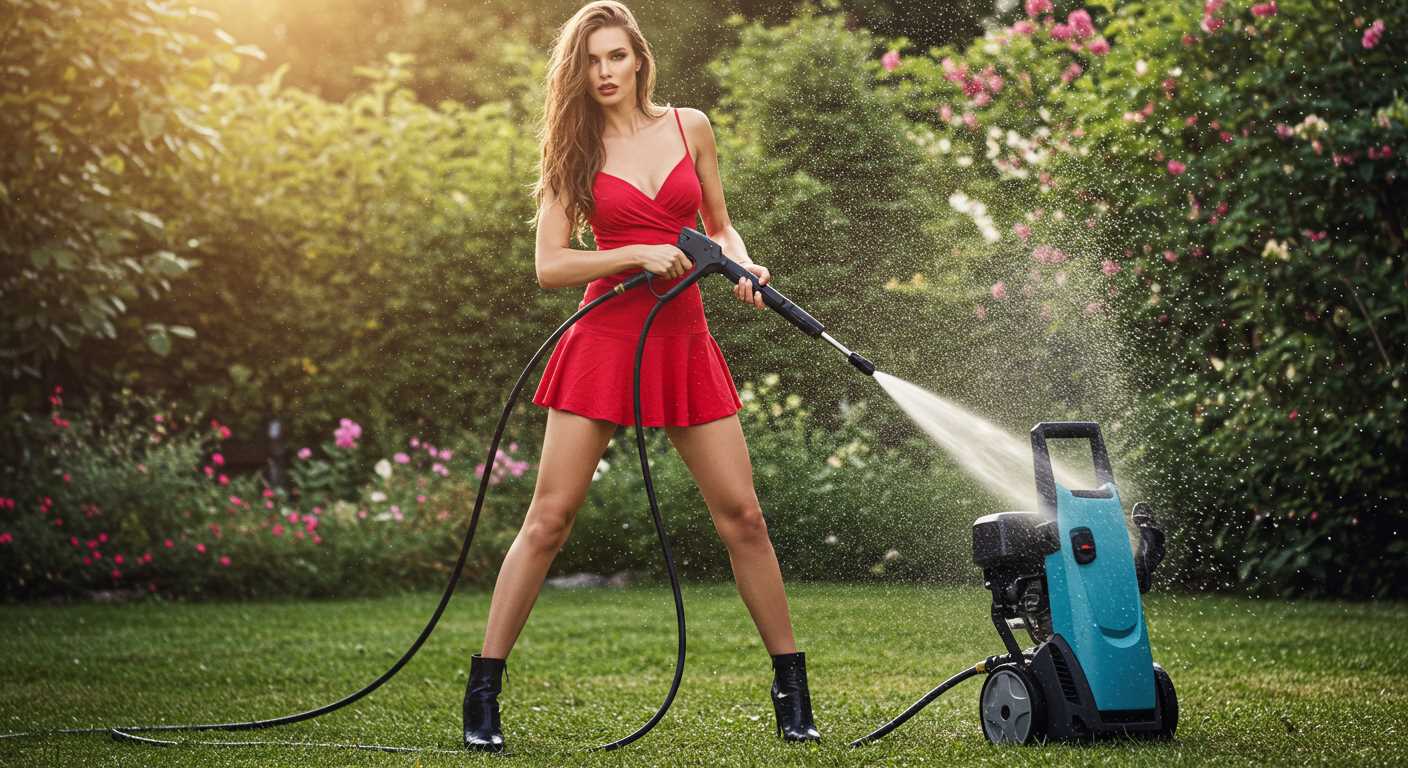
A burnt or unusual smell during operation may reflect burning components due to moisture interference with electrical systems.
If you notice any of these signs, cease operation immediately and consult a qualified technician for a thorough inspection and necessary repairs.







